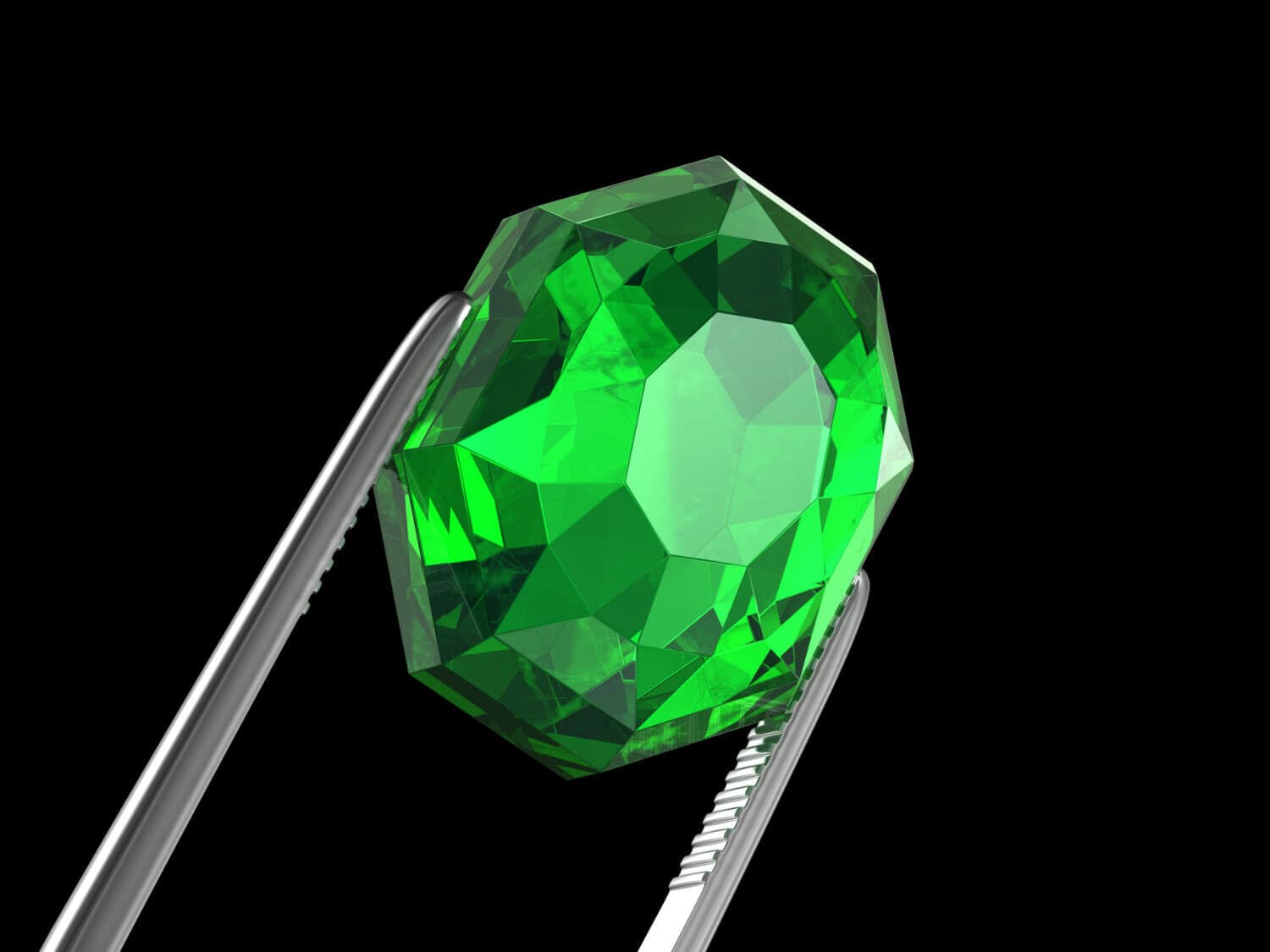
How to Identify Emerald Simulants and Synthetics
Gemologists can separate natural emeralds from emerald simulants and synthetics. Learn about the most common tools and techniques for this.
29 Minute Read

A Brief Review of Emerald’s Chemical Properties
- Emerald is a member of the beryl mineral family.
- Its chemical formula is Be3Al2Si16O18.
- Emerald is an allochromatic gem, meaning that it is colored by elements that are not intrinsic to its structure.
- The coloring elements (chromophores) that give emerald its green color are chromium and vanadium, either individually or more commonly in some combination. (Read, 2005)
- If no coloring element is present in beryl, the beryl will be colorless. This type of gem is called a goshenite.

Does it Matter if an Emerald is Colored by Chromium or Vanadium?
Gemologically speaking, if vanadium is the only or predominant coloring element, the stone should be referred to as “green beryl.” However, there was a long-running disagreement over this, stemming from the discovery of green beryls colored by vanadium in Brazil. (Hanni, 1992; Ward, 2001) Following years of lobbying and discussion, these stones finally received official recognition in 1963, when the GIA issued reports identifying them as “natural emerald.” (Ward, 2001) Purists may still dispute this identification,
…


